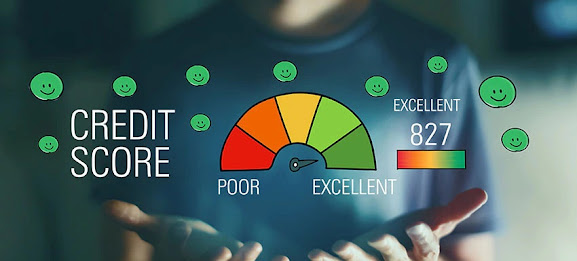How To Improve Your Credit Score

Your credit score isn’t just some random number—it’s the golden key to your financial future. It determines whether you can get a mortgage, a car loan, a credit card, or even rent an apartment. A higher score means lower interest rates, better financial opportunities, and even savings on things like insurance.
If your credit score isn’t where you want it to be, don’t panic—you can fix it. And the sooner you start, the better.
Understanding Credit Scores: What Are They and How Do They Work?
A credit score is a three-digit number ranging from 300 to 850, and it tells lenders how responsible you are with money. According to Experian, a good credit score generally starts around 670. But what all goes into creating that number?
The 5 Factors That Affect Your Credit Score
- Payment History (35%) – Pay on time, and your score rises. Miss payments, and it tanks.
- Credit Utilization (30%) – The amount of credit you’re using compared to your total available credit. Keeping this below 30% is key.
- Length of Credit History (15%) – The longer you’ve had credit, the better. Closing old accounts can actually hurt you.
- Types of Credit (10%) – A mix of credit cards, loans, and mortgages can improve your score.
- New Credit Inquiries (10%) – Applying for too many credit cards in a short time can lower your score.
How to Improve Your Credit Score (The Right Way)
Pay Your Bills On Time (Seriously, This is the Biggest Factor
Your payment history makes up 35% of your credit score, so paying on time is the fastest way to boost your score. Even one late payment can drop your score by 50+ points. The best way to keep this from happening? Set up automatic payments or reminders to ensure you never miss a due date.
Lower Your Credit Utilization
Credit utilization – how much of your available credit you’re using – plays a major role in your score. If your limit is $10,000 and your balance is $7,500, your utilization is 75% – which is bad. Keep your credit utilization below 30%. Better yet, under 10% is even better.
Don't Close Old Credit Cards (Unless You are Drowning in Fees)
Your credit age matters. Closing an old account shortens your credit card history, which can hurt your score. If you must close a card, make sure it is not your oldest one. So whats the best plan? Keep old credit cards open and use them occasionally for small purchases. Have autopay set up so you don’t miss a payment. Overall, these cards will help your score and closing them could be a bad move.
Limit Hard Inquiries
Every time you apply for a loan or credit card, lenders check your credit with a hard inquiry – which can temporarily lower your score. Too many hard inquiries in a short period of time? That’s a big red flag to lenders. Ok, so whats the best approach? You’re supposed to have credit cards, utilize them, and pay them on time. But it hurts to apply for them? While it does hurt, it mainly hurts if you are applying for many in a short amount of time. Space out new credit applications by at least 6 months.
Dispute Credit Report Errors (Yes, Mistakes Happen!)
Believe it or not, 1 in 5 credit reports contain errors – and those errors can be lowering your score. Check your credit report regularly and dispute any inaccuracies.
Common Credit Score Myths
“Checking My Credit Hurts My Score” – False. Only hard inquiries (like applying for a loan) affect your score. Checking your own credit is totally fine.
“I Should Close Old Accounts to Clean Up My Credit” – Nope. Keeping old accounts open helps your score.
“Paying Off Debt Instantly Raises My Score” – Not always. It depends on your utilization and credit history.

Advanced Credit Score Tips
Become an Authorized User on Someone Else’s Card
If you know someone with great credit (a parent, spouse, or friend), ask them to add you as an authorized user on their credit card. Their positive credit history gets added to your report, boosting your score fast.
Negotiate Debt Settlements (And Get Negative Marks Removed)
Sometimes, creditors will agree to remove negative marks from your report if you settle your debt. This is called a “pay-for-delete” agreement.
Use Rent and Utility Payments to Build Credit
Your rent and utility bills don’t usually count toward your credit score—but some services let you report them to credit bureaus to give your score a boost.
Final Thoughts
Improving your credit score isn’t magic, but it is possible with the right steps. Start with on-time payments, lower your utilization, and fix any errors. But hey, just reading about it isn’t enough. Put what you read today to use!
Learn More About Credit
Don’t stop here. You are just getting started. Check out these articles on how to further your credit building journey.
